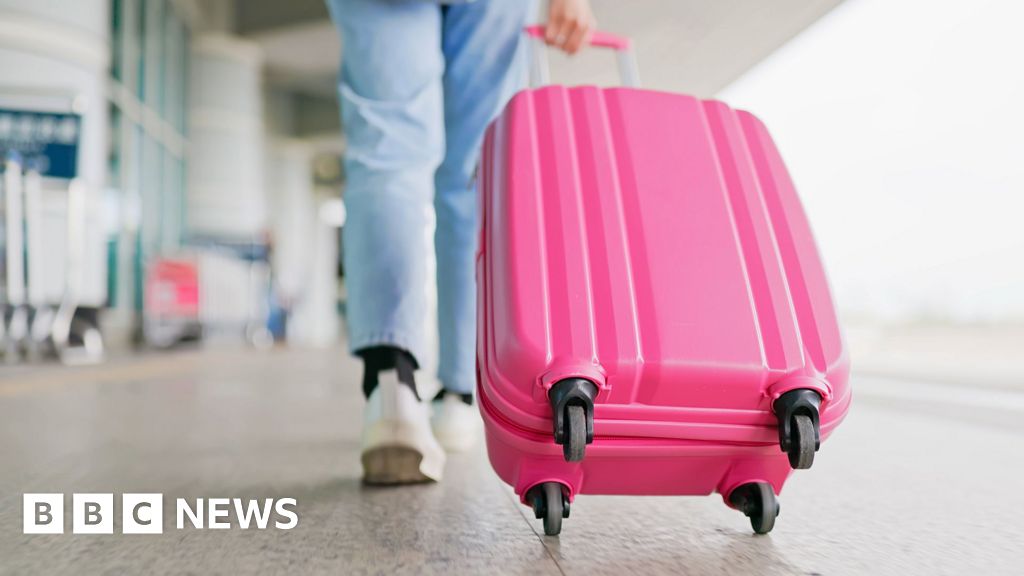ARTICLE AD BOX
By Lora Jones
Business reporter, BBC News
Image source, Getty Images
The Chancellor of the Exchequer, Rishi Sunak, will deliver his Spring Statement to the House of Commons on Wednesday.
Normally, this would just involve setting out new figures on how the economy is doing, but many people want him to go further and announce measures to tackle steep rises in the cost of living.
Why is the cost of living going up?
When Mr Sunak delivered his Budget in October, he said that that the UK economy was expected to grow by 6% in 2022, as a result of the bounce-back from the pandemic.
But a lot has happened since then.
The cost of living has continued to rise, due to a number of reasons - mostly notably the increase in oil and gas prices.
Meanwhile, the war in Ukraine could push food and energy prices higher still.
The Bank of England has warned that inflation could reach 8% in the coming months, and remain higher for longer.
If prices rise too much, consumers could be put off spending, which in turn could reduce economic growth.
Higher costs could also mean that businesses may decide to delay investment.
Given these circumstances, the chancellor may be forced to act given how quickly things have changed.
What measures could the chancellor take?
Petrol and diesel prices have soared in recent weeks, worsened by Russia's invasion of Ukraine.
More than 50 Conservative MPs have called for a cut in fuel duty - this is currently 57.95p per litre (with VAT of 20% applied on top).
Several newspapers have reported that Rishi Sunak is considering a temporary cut of as much as 5p per litre.
However, opposition MPs have questioned whether this would go far enough - Shadow chancellor Rachel Reeves suggests that a 5p cut would only reduce filling up a car with petrol by £2.
Experts have warned that those relying on the state pension could be hit particularly hard by rising costs.
The state pension usually increases each year in line with whichever is the highest - inflation, average wage increases or 2.5%. This is known as the triple lock.
However, last September the government suspended the triple lock because of fears about how fast wages were increasing.
Since then, costs have spiralled. Inflation, which measures how the cost of living increases over time, now stands at a 30-year high of 5.5%.
Laura Suter, head of personal finance at AJ Bell, suggests the chancellor could offer some temporary targeted support, or commit to reintroducing the wages element in the triple lock from April 2023.
Next month, the government will increase benefits, such as Universal Credit, by 3.1%, but dozens of charities want the chancellor to go further.
The Trussell Trust, which runs a large network of food banks across the UK, described the government's planned increase as "dangerously insufficient".
Image source, Getty Images
Along with Save the Children UK and the Child Poverty Action Group, it has urged Rishi Sunak to increase benefits by at least 7%.
Universal Credit claimants received an extra £20 per week during the pandemic, but this ended in October.
The government has defended the decision to remove the uplift, saying it plans to expand the eligibility of the Warm Homes Discount designed to cut energy bills.
National Insurance rise delay
Business leaders and politicians across different parties have urged the chancellor to delay a planned increase in National Insurance payments to fund health and social care.
From April, employees, bosses and the self-employed are due to pay 1.25p more in the pound from their pay packet.
There has been criticism that the move is unfair on the lower-paid, especially when the cost of living is rising. An employee on £20,000 a year will pay an extra £89 a year, for example.
Business trade groups have also suggested it might be the "final straw" for firms struggling to cope.
Prime Minister Boris Johnson and Chancellor Rishi Sunak wrote in the Sunday Times in January insisting that it was the "right plan" and it "must go ahead" to help clear the NHS backlog.
Since then, there have been reports that the chancellor, instead of scrapping the increase completely, might raise the point at which people start paying.
Analysis by the Resolution Foundation think-tank suggests that increasing the threshold to £12,500 would mostly benefit middle-earners.
But it said paired with an increase in benefits, it could "provide some badly needed respite for families in the year ahead".

 3 years ago
148
3 years ago
148








 English (US) ·
English (US) ·